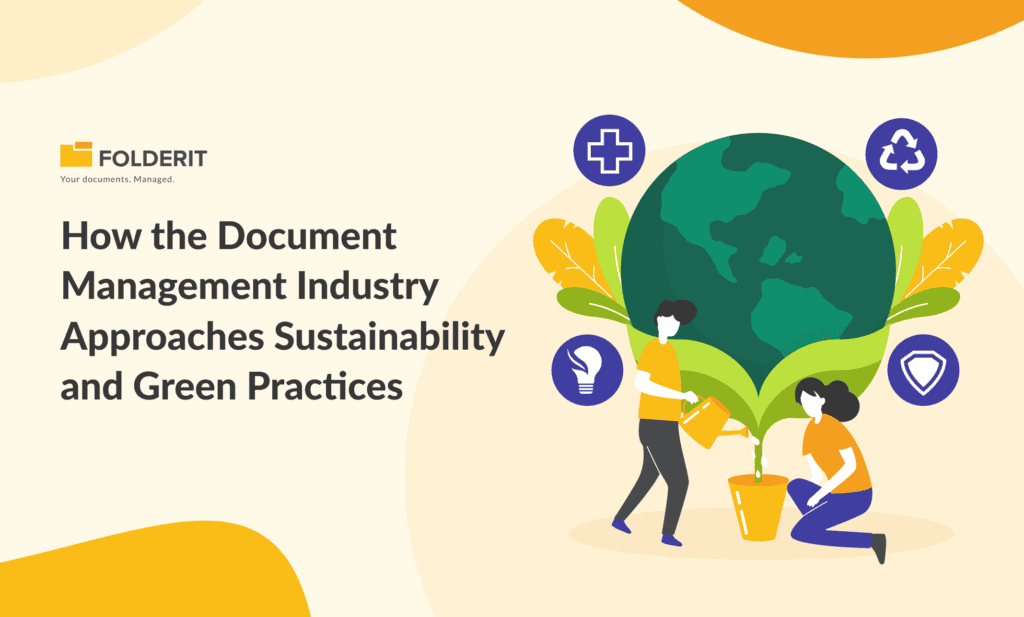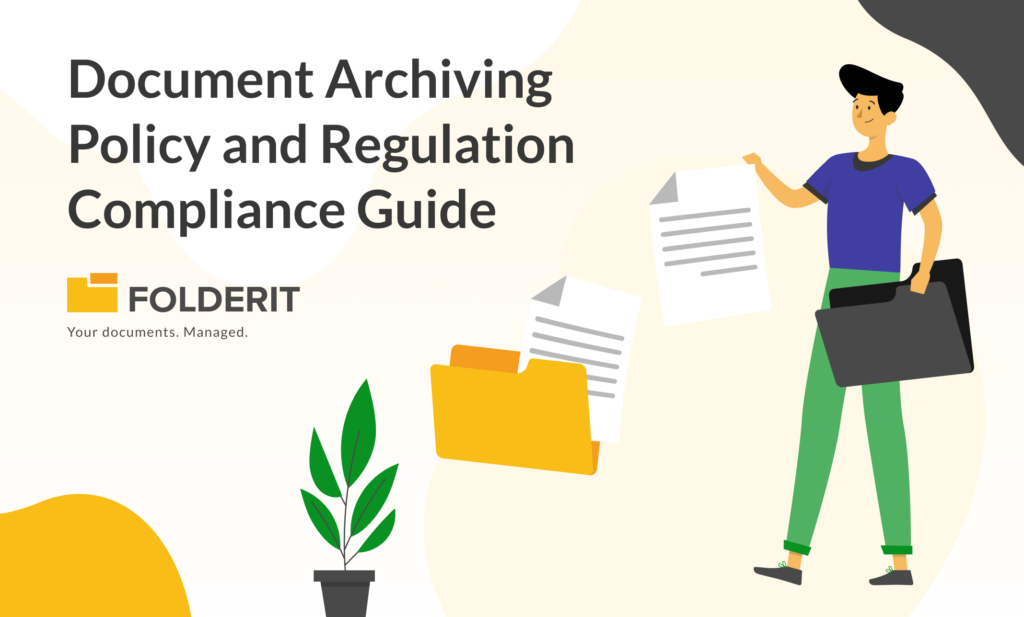Industries across the board are reevaluating their practices to ensure sustainability. The document management industry, pivotal in daily corporate operations, is no exception.
The Shift Towards Sustainability in Document Management
The Need for Change
The document management industry, traditionally reliant on paper, faces significant environmental challenges. With global paper and cardboard production reaching over 400 million tonnes annually the industry's carbon footprint is substantial. The average office worker uses around 10,000 sheets of paper each year, contributing to this environmental load. This scenario underscores the urgent need for sustainable practices.
Embracing Digital Solutions
To mitigate these environmental impacts, the industry is increasingly adopting electronic document management systems (EDMS). These systems play a crucial role in reducing paper output, a key contributor to waste in office environments. By transitioning to digital documents, businesses can significantly shrink their carbon footprint. For instance, electronic systems lessen the demand for paper, which is crucial considering that printer cartridges can take up to 1,000 years to decompose in landfills.
Enhanced Efficiency and Waste Reduction
Apart from environmental benefits, EDMS also boost organizational efficiency. They streamline document storage, making it easier to locate and correct errors, thus enhancing overall productivity. By reducing the reliance on physical documents, these systems also cut down on the use of ink, toner, and electricity, contributing further to sustainability.
Cost-Effectiveness
Contrary to the misconception that going green is costly, adopting sustainable document management practices can actually lead to significant cost savings. Reduced paper, ink, and energy consumption translate into lower operating expenses. In addition, less physical storage space is required, further decreasing overhead costs.
Industry-Wide Trends Elevating Sustainability
The document management industry is witnessing a paradigm shift towards sustainability, driven by both technological advancements and consumer expectations. These days majority of consumers expect companies to maintain sustainable practices, in fact in the Business of Sustainability study it is reported that “78% want to buy from environmentally friendly companies but don’t know how to identify them”. The same study reported that “72% of consumers read product labels or rely on third-party certifications to identify a product’s sustainability benefits”, thus influencing businesses to integrate eco-friendly operations.
Additionally, the Global Document Management Systems Market is expected to grow from $5.5 billion in 2020 to $12.94 billion by 2027, with sustainability being a key driver.
This transition is marked by several key trends:
- Reduction in Print and Waste: The adoption of Electronic Document Management Systems (EDMS) is significantly reducing the need for printing, thereby preventing unneeded document accumulation and waste. This move is crucial in mitigating the environmental impact of paper and ink usage.
- Scalable Cloud-Based Solutions: The surge in cloud computing is reshaping document management. Cloud-based DMS allows businesses to scale their operations flexibly, ensuring secure and accessible data management without the physical constraints of traditional systems.
- Emphasis on Cybersecurity: With the rise in remote work, cybersecurity has become more critical. Document management companies are enhancing their software with robust security measures, protecting sensitive data from growing cyber threats.
- FDA’s Technology Modernization Action Plan (TMAP): Regulatory bodies like the FDA are transitioning their data systems from manual and paper-based to digital, aiming to improve data quality, security, and scalability.
These trends demonstrate the industry's commitment to sustainability, highlighting the crucial role of document management in fostering eco-friendly and secure business practices.
The Role of Folderit in Sustainable Document Management
Pioneering Green Practices
As the industry continues moving towards sustainable solutions, Folderit emerges as a frontrunner in eco-friendly document management. Recognizing the importance of environmental sustainability, Folderit has tailored its cloud-based DMS to align with green practices, differentiating itself from average cloud-based systems.
Reducing Carbon Footprint
Folderit's sustainable, carbon-neutral cloud solution significantly reduces paper dependency, aligning with global efforts to minimize environmental impact. By facilitating the transition to paperless workflows, Folderit aids organizations in cutting down their paper usage, printing needs, and physical storage requirements.
Minimizing Waste and Costs
Folderit's approach to document management not only aids in environmental conservation but also ensures cost-efficiency. The system's reduction in paper and power consumption leads to decreased waste production and lower operational expenses. Additionally, Folderit's strategies, like automated document retrieval, streamline business processes, further reducing costs.
Promoting a Sustainable Workflow
Folderit's DMS enhances workflow efficiency by automating document storage, enabling easier error identification and correction. This transition from manual, paper-based processes to automated, digital systems results in significant time savings and improved productivity. With features like DocuSign integration, Folderit simplifies approval processes, further reducing paper usage.
The Butterfly Effect of Sustainable Practices
Folderit's embrace of sustainability extends beyond direct environmental benefits. By adopting a paperless system, the broader impact on global manufacturing becomes evident. As companies like Folderit reduce the reliance on paper, there's a cascading effect on the paper production industry. This shift potentially leads to a reduction in the overall environmental burden of paper generation and waste. Such a transformative approach not only positions Folderit as an eco-conscious leader but also contributes to a larger movement, inspiring a shift in operational paradigms across various industries towards more sustainable practices.
Leading by Example
Folderit's commitment to sustainability extends beyond its product offerings. By integrating sustainable practices into its operations and encouraging a culture of environmental responsibility, Folderit sets a precedent in the industry. This commitment not only resonates with environmentally conscious consumers but also inspires other companies to follow suit.
Conclusion
The document management industry's shift towards sustainability is a vital response to global environmental challenges. Through the adoption of EDMS, businesses are not only enhancing their operational efficiency but also contributing significantly to environmental conservation. In this landscape, Folderit stands out as a leader, offering a sustainable, efficient, and cost-effective document management solution. By choosing Folderit, organizations can take a significant step towards sustainability, aligning their business practices with the urgent need for environmental stewardship.



